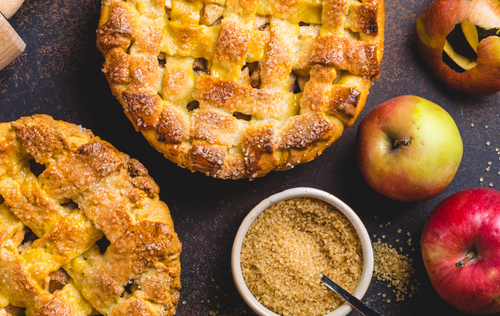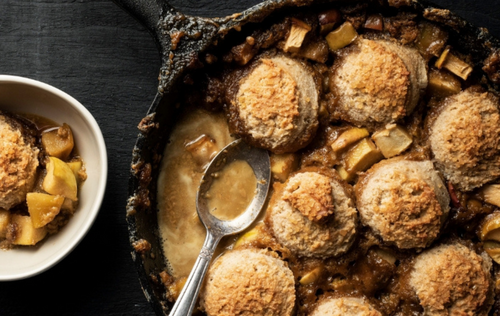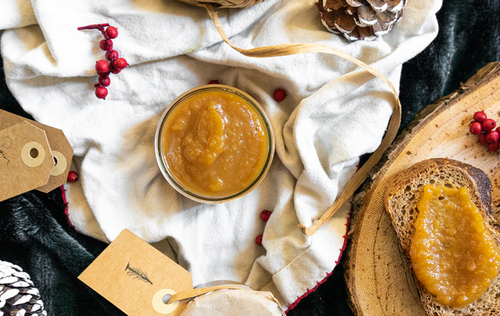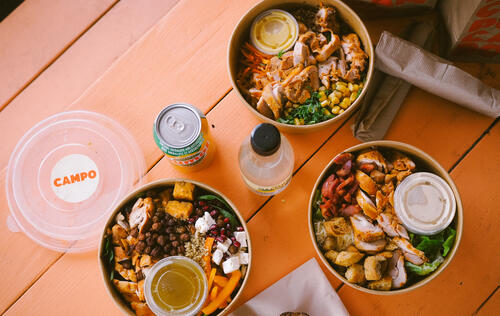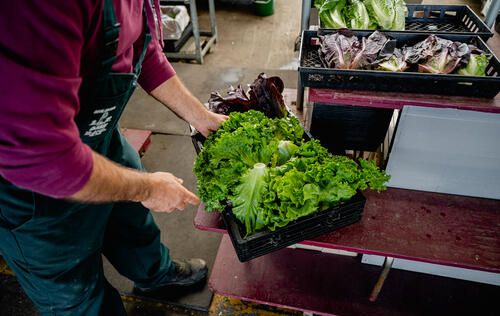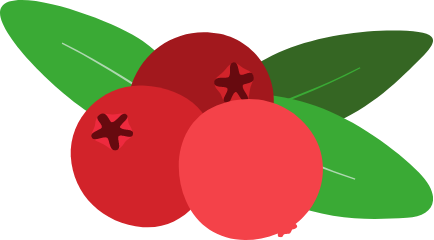Do you know your apples ?
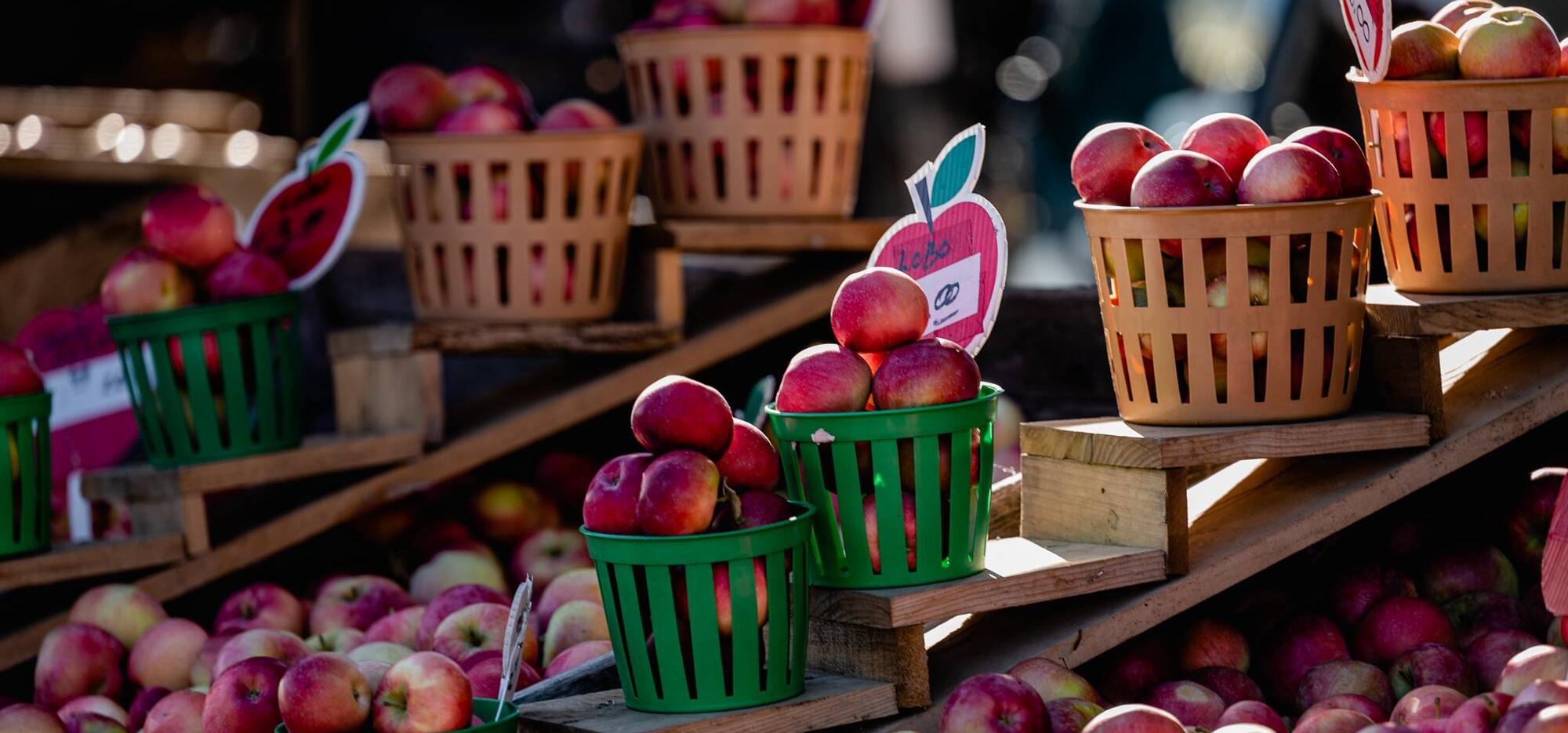
Apples are a real gem in Quebec. In Montreal's public markets, they are one of the few local fruits available year-round thanks to their remarkable ability to be stored in cold rooms. Apple growers, also known as pomiculteurs, are mainly located in Montérégie (38%), the Laurentians (14%), the Capitale-Nationale region (9%), Chaudière-Appalaches (9%), and Estrie (6%) (2023 data).
Apple growers at our markets
Did you know that Montreal's public markets have several apple growers? You can recognize them by their displays proudly displaying the words “orchard” or “estate.” Among the apple producers at Montréal's public markets are Verger Cournoyer, Verger Éric Tanguay, Jacques l'Écuyer, Coteau Rougemont, Éric L'Écuyer, and Domaine Villeneuve at Jean-Talon Market, as well as Verger Alain Dauphinais at Atwater Market.
Behind their stalls filled with apples lies a complex agricultural production process that requires great expertise and a lot of patience. In fact, each apple tree takes between three and seven years to produce its first fruit. Apple growers must therefore continually innovate to anticipate customer trends and face the climate challenges of tomorrow.
Learn more about apple production
This innovation involves the creation of new cultivars, a mission undertaken by the La Pomme de demain collective, founded in 1986. Their work has led to the creation of two new 100% Quebec cultivars, Rosinette and Passionata. Led by passionate hybridizer Roland Joannin, this process took more than 20 years and required the involvement of certain apple growers in our markets, including Domaine Villeneuve. Its fields served as a testing ground for the two new varieties. Between grafting, controlled pollination, and cuttings, Quebec apples are a testament to the passion of local producers.
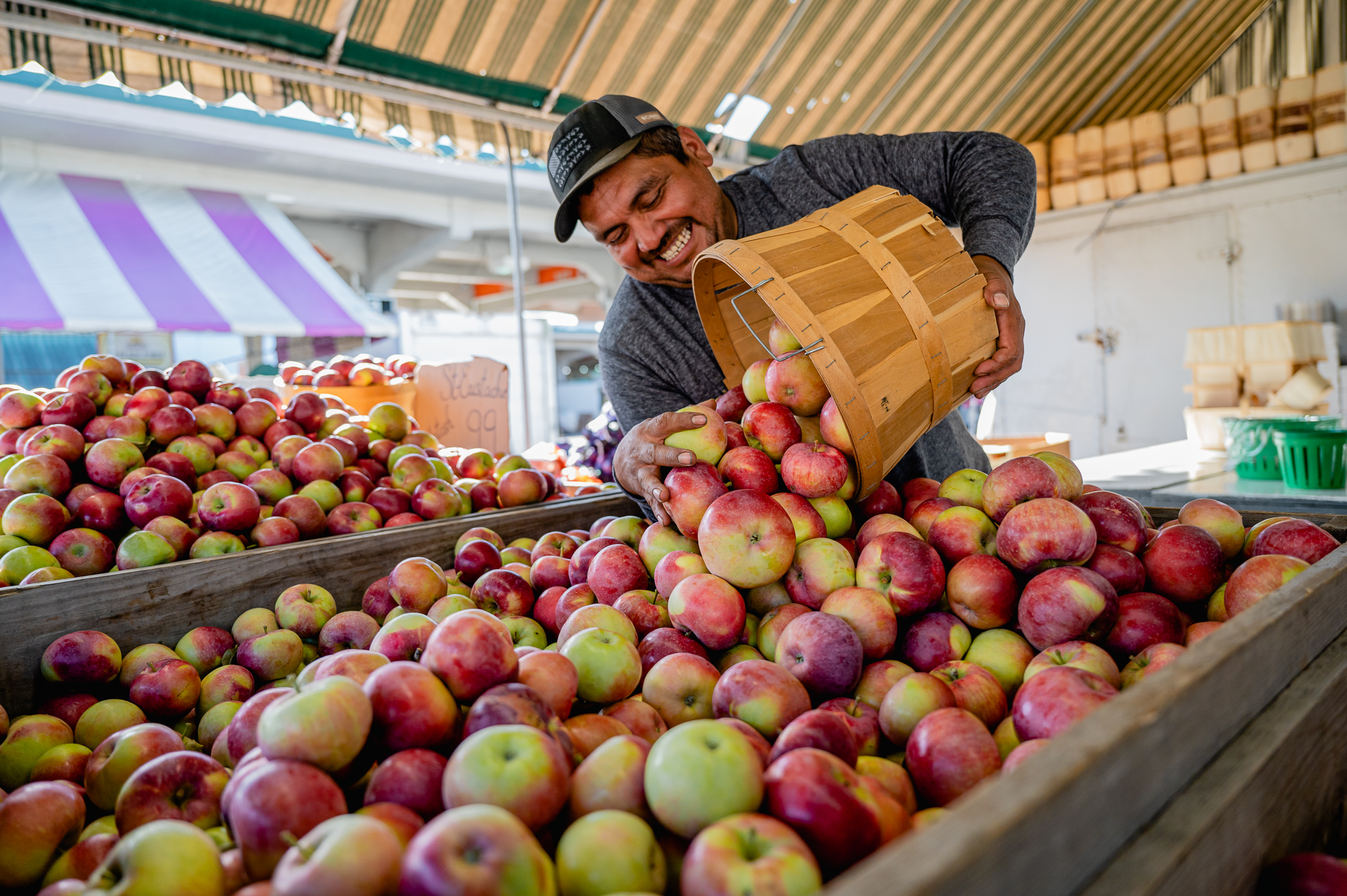
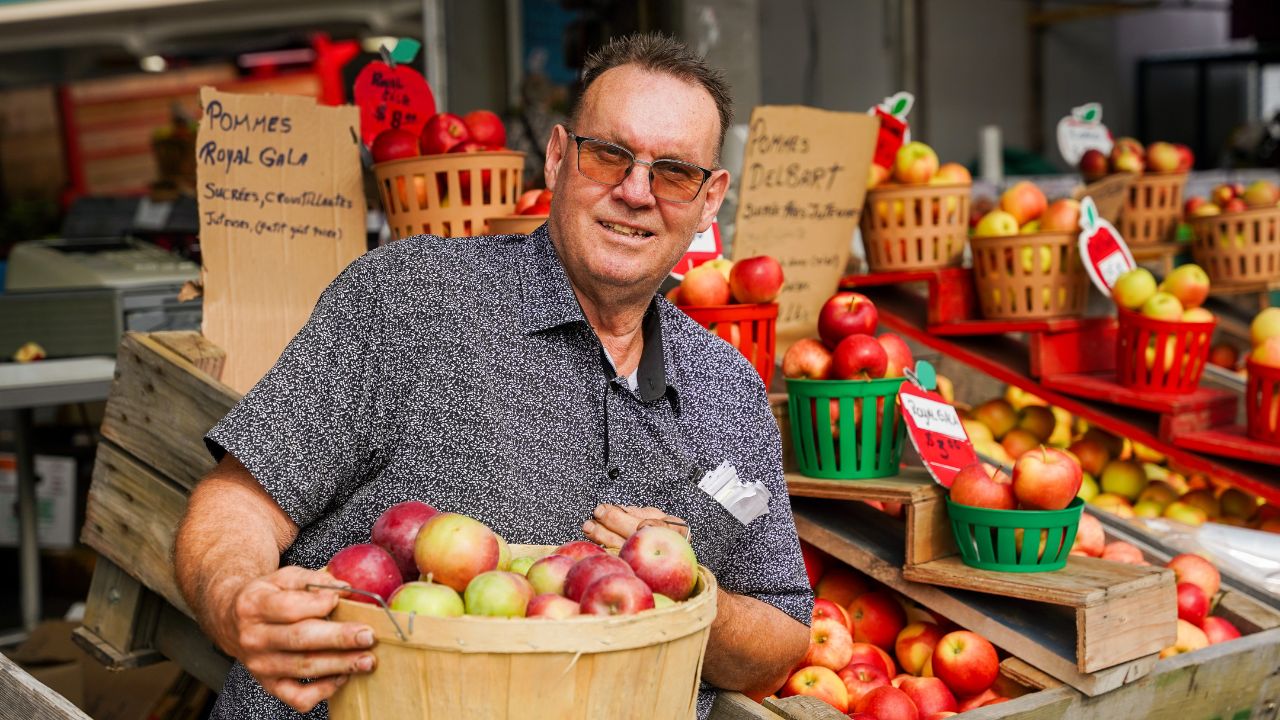
Apple varieties for all uses
In Quebec, more than 18 varieties are grown, each with its own culinary characteristics!
The best-known apple is the McIntosh, with its beautiful appearance and juicy taste. It is also the most widely grown apple for consumption, but the trend is changing. More and more consumers are preferring new varieties, such as Honeycrisp or Gala, which are sweeter.
Other varieties include: Vista Bella, Jewsey Mac, Sunrise, Paulared, Lobo, Ginger Gold, Honeycrisp, Gala, Spartan, Cortland, Empire, Primgold, Rosinette, Passinata, Red Delicious, Ambrosia, and Yellow Delicious.
In addition to being excellent for eating on their own, apples are also wonderful for processing. Discover them in juice, cider, slush, desserts, and compotes!
Quebec is internationally renowned for certain products such as ice cider, a beverage made exclusively from late-season apples grown and harvested in Quebec, whose sugars are concentrated solely by natural cold.
Storage tip: remember to keep your apples in the refrigerator. At room temperature, they will soften 10 times faster!
Some varieties to discover
There are several varieties of apples in Quebec, including 18 main varieties. Have you tried them all? The most recent variety is the Passionata apple. It was introduced in 2015 in Quebec orchards. You can find it at the Domaine Villeneuve stand at the Jean-Talon Market.
Each apple variety has its own history, which influences its ideal use. Some apples are best for eating raw, while others are better for compotes or ciders. Cortland apples, for example, are ideal for pies and crumbles. The Quebec Apple Growers Association has put together a short guide to help you find your way around.
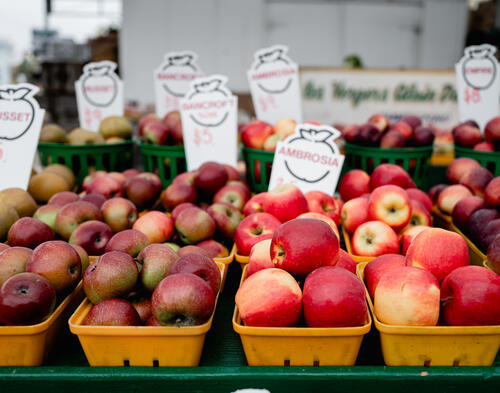
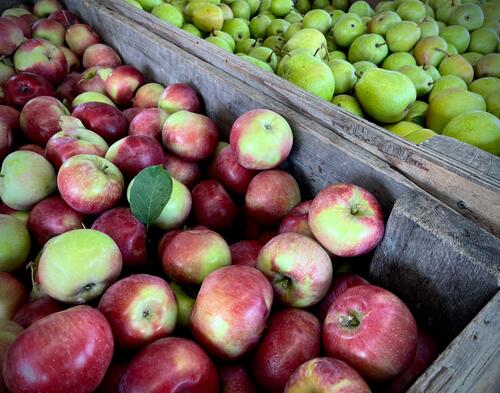
Ambrosia
Good for eating raw or cooking, this variety is becoming increasingly popular. It is perfect in salads, as its flesh browns more slowly.
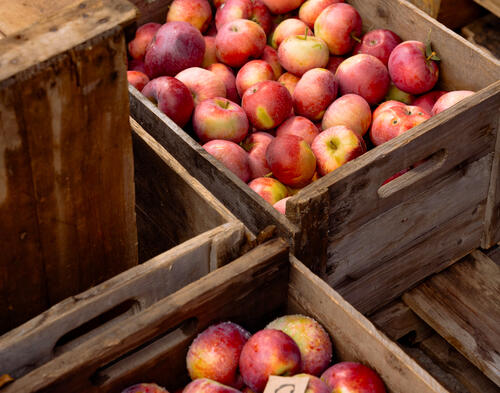
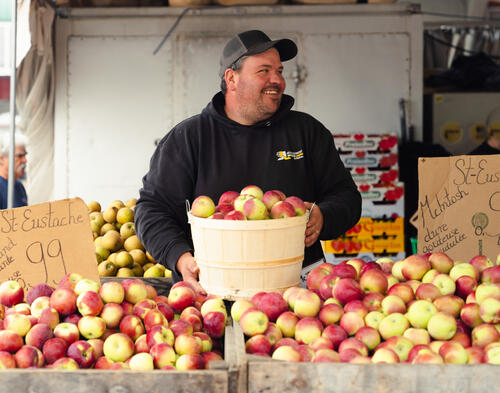
The Sunrise
Delicious to eat, the Sunrise is an apple with a short shelf life. It is therefore considered an early variety. It is not very acidic and is sweet.
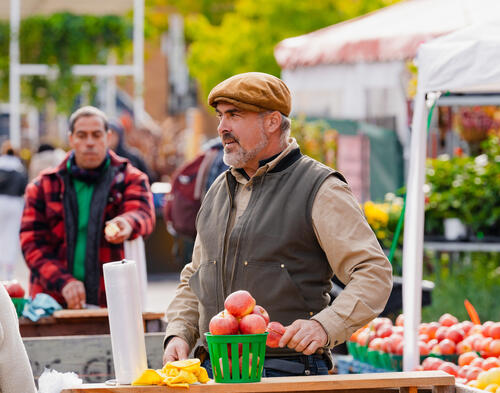
The Delicious Yellow
Good for cooking or eating raw, this apple is available from mid-October. It stands out for its honey flavor and slightly tart flesh. Its production is lower in Quebec.
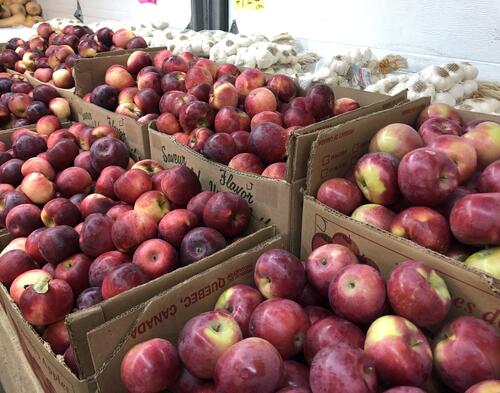
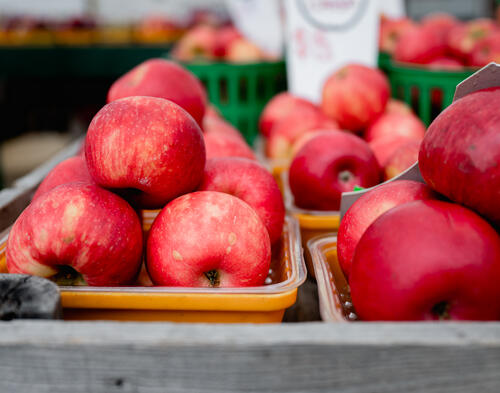
The Spartan
One of the crunchiest apples on the market, which you can eat raw, bake, or even drink as cider.
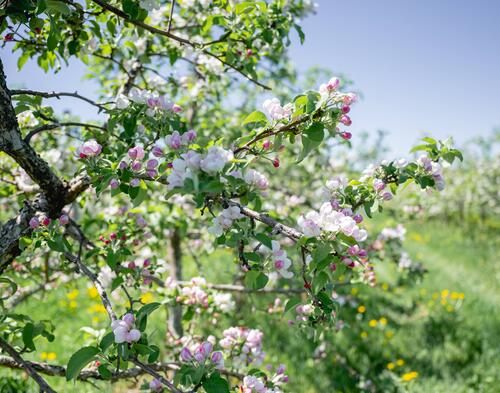
Apple-based recipe
Cette actualité fait partie du Guide saisonnier des Marchés publics de Montréal - édition automne, une publication trimestrielle gratuite que vous pouvez trouver dès maintenant dans tous vos marchés publics préférés, grâce à l’appui financier de la Ville de Montréal.

